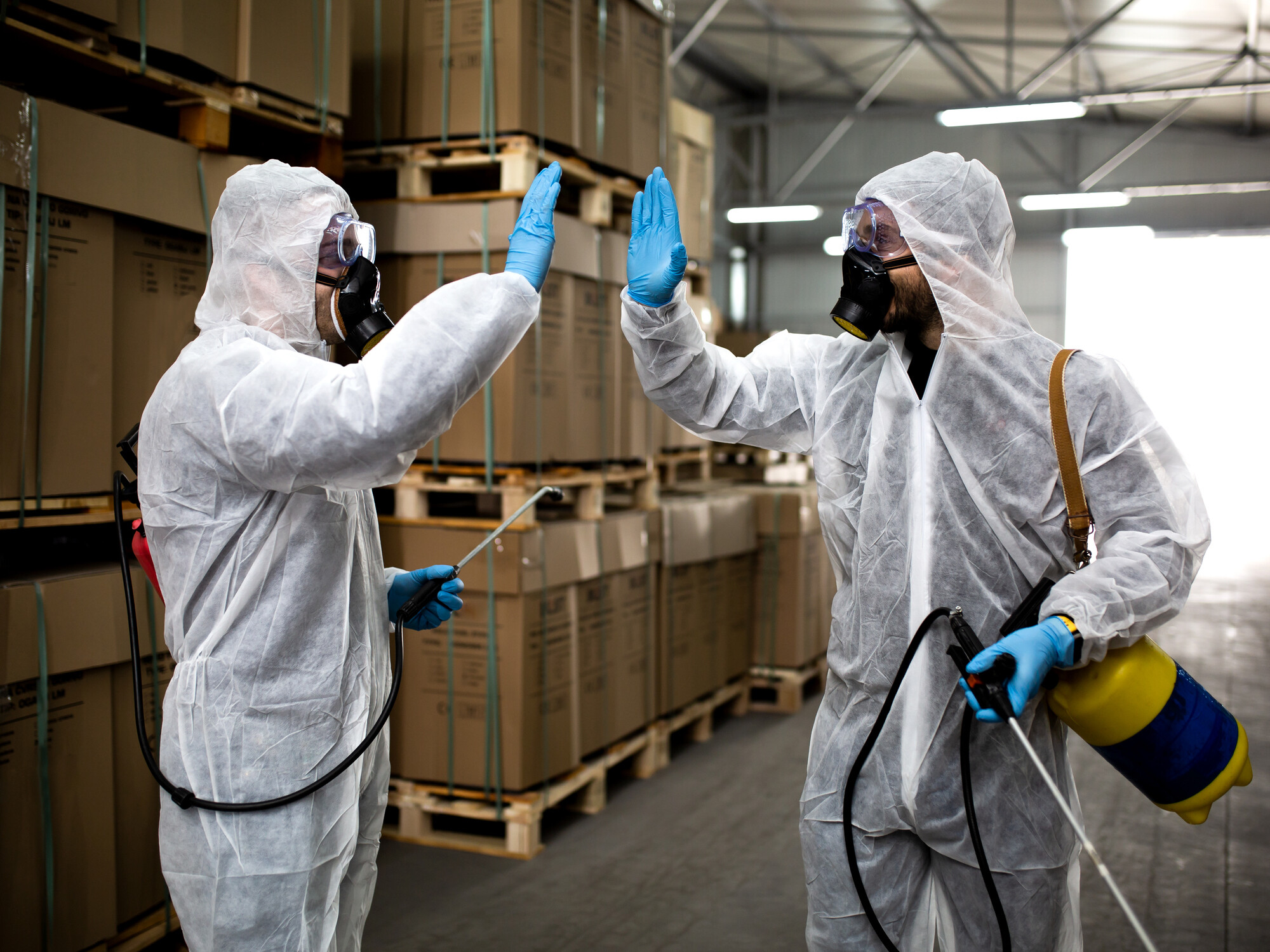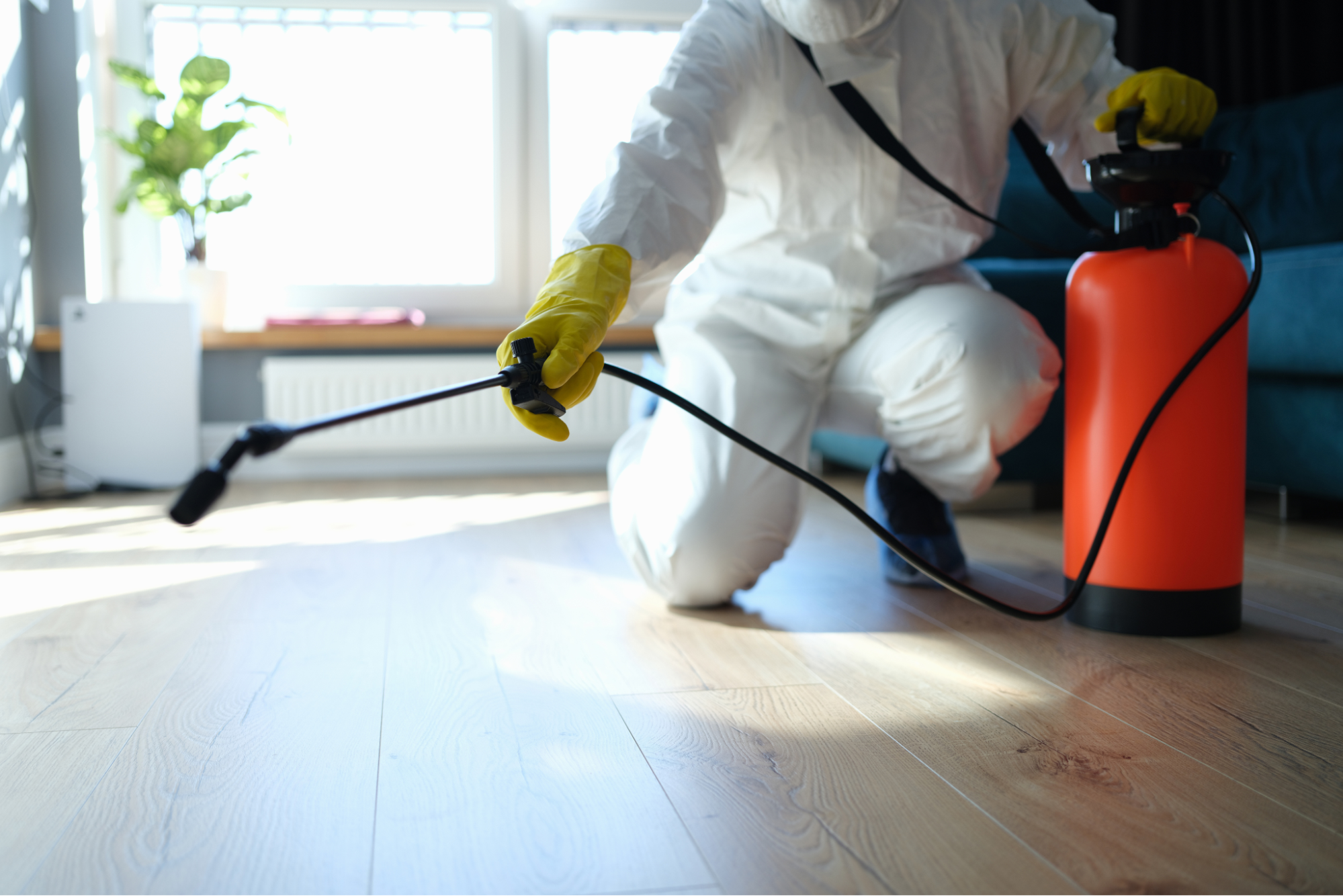Safe and Efficient Chicago Pest Control for Restaurants: Safeguard Your Service from Pests
Safe and Efficient Chicago Pest Control for Restaurants: Safeguard Your Service from Pests
Blog Article
Discovering Numerous Approaches and Strategies for Comprehensive Parasite Control in Residential Spaces
The landscape of parasite control in domestic rooms has evolved substantially, necessitating a detailed understanding of different methods that can be used for effective management. Standard chemical therapies, while effective, are significantly being matched by environmentally friendly alternatives and Integrated Parasite Administration (IPM) strategies.
Recognizing Pest Control Essential
Efficient parasite control is necessary for preserving a secure and healthy living atmosphere. Understanding the essentials of insect control involves recognizing the kinds of parasites that commonly invade property rooms, the potential risks they present, and the relevance of precautionary actions. Typical home parasites consist of rodents, bugs, and other unwanted animals that can compromise hygiene, damages residential or commercial property, and activate health and wellness concerns.
An important primary step in pest control is recognizing the specific bugs present. This can entail evaluating locations such as basements, kitchen areas, and attics, where pests are most likely to grow. As soon as recognized, it is vital to recognize their behaviors, reproducing cycles, and chosen environments, which can inform ideal control approaches.
Safety nets are fundamental to reliable bug administration. These include securing access points, maintaining sanitation, and minimizing clutter to remove hiding places. Furthermore, proper food storage space and waste administration can considerably lower the appeal of a home for insects.

Conventional Chemical Therapies
Among the different parasite control strategies, traditional chemical treatments have long been utilized to attend to problems in household rooms. These therapies generally involve the application of chemical pesticides developed to get rid of insects such as bugs, rodents, and other unwanted organisms. The effectiveness of these chemicals can vary, depending on the kind of pest, the solution of the chemical, and the approach of application.
Usual courses of standard chemical treatments include insecticides, fungicides, rodenticides, and herbicides, each tailored to fight specific pests. Pesticides, for instance, might target cockroaches, termites, or ants, while rodenticides are especially formulated to regulate rodent populaces. These chemicals are typically readily available in various types, consisting of sprays, granules, and baits, permitting home owners versatility in application.
Regardless of their effectiveness, conventional chemical therapies elevate worries relating to possible toxicity to people, pet dogs, and beneficial microorganisms in the environment. Therefore, it is essential for house owners to thoroughly follow application guidelines and safety and security preventative measures to minimize dangers. Integrated Pest Administration (IPM) strategies can match these therapies, ensuring a much more holistic technique to pest control while optimizing efficiency and safety in property setups.
Eco-Friendly Insect Control Options
Green pest control choices are obtaining popularity as home owners seek much safer and a lot more lasting alternatives to conventional chemical treatments. These approaches prioritize the health of both citizens and the setting, lessening the influence of pest control practices.
One widely embraced environment-friendly strategy is using natural repellents obtained from crucial oils, such as peppermint and citronella. These my company oils not just hinder pests but also offer enjoyable scents for indoor areas. Additionally, diatomaceous earth, a powder made from fossilized algae, functions as a natural insecticide by damaging the exoskeletons of bugs upon get in touch with, resulting in dehydration.
One more efficient method involves promoting biodiversity in backyards and yards. Introducing advantageous insects, such as ladybugs and lacewings, can normally regulate pest populations (Chicago wasp nest removal). In addition, utilizing traps made from biodegradable products can assist capture and remove parasites without triggering harm to the ecosystem
Normal maintenance, such as sealing access factors and correct cleanliness, more boosts the performance of environment-friendly insect control. House owners can take positive measures to avoid invasions, guaranteeing an extra sustainable living setting while successfully managing pest-related concerns.
Integrated Insect Monitoring Techniques
Implementing incorporated pest administration (IPM) strategies uses an extensive strategy to pest control that emphasizes avoidance and long-term options. IPM incorporates multiple tactics, concentrating on understanding bug behaviors, life cycles, and eco-friendly dynamics to lessen parasite populations successfully. This complex technique focuses on non-chemical approaches, such as biological control, habitat adjustment, and cultural practices, to minimize dependence on pesticides.
A foundational element of IPM is checking and identifying insects precisely. When intervention is required, this includes normal evaluations and the establishment of activity thresholds to establish. By comprehending the particular bugs influencing household environments, targeted interventions can be employed, reducing the possibility of unneeded chemical applications.
By fostering an environment that inhibits bug invasions-- such as sealing access points and managing dampness-- locals can dramatically reduce the risk of bug issues. Via these approaches, IPM not only addresses current bug issues however also fosters lasting methods that advertise lasting bug monitoring success.
Preventative Procedures for Residence
To fend off prospective bug problems, property owners must take on an aggressive approach that emphasizes preventative steps. This starts with preserving a tidy and well organized home, as clutter and food particles attract bugs. Chicago wasp nest removal. Frequently vacuuming, sweeping, and cleaning down surfaces can considerably lower the risk of infestations
Furthermore, securing access points is critical. Property owners must evaluate home windows, doors, and foundation cracks for spaces that might permit pests access to the home. Utilizing caulk and weather condition stripping can successfully obstruct these entranceways.
Correct food storage is another crucial procedure. Keeping food in impermeable containers and without delay cleansing up crumbs or spills helps deter rats and pests.
In addition, taking care of exterior settings can Get More Info protect against parasites from encroaching on residential spaces. Homeowners should ensure that water drainage systems are working well, and landscape design is maintained neat. Trimming trees and shrubs far from your house and getting rid of standing water can additionally reduce bug habitats.

Verdict
In final thought, efficient pest control in household areas requires a multifaceted strategy that integrates conventional chemical therapies with environment-friendly practices and Integrated Parasite Administration techniques. By focusing on preventative steps, such as maintaining sanitation and sealing access points, home owners can substantially decrease parasite incidents. Normal tracking and accurate parasite identification better improve monitoring efforts. Inevitably, a balanced method that incorporates all-natural repellents and the very least harmful chemicals cultivates a healthy and secure living atmosphere while dealing with pest-related obstacles.
Recognizing the fundamentals of pest control includes acknowledging the kinds of parasites that commonly invade domestic areas, the prospective dangers they posture, and the relevance of preventive measures.A vital very first action in parasite control is identifying the specific pests present. Integrated Pest Management (IPM) techniques can complement these treatments, ensuring a more holistic approach to pest control while making the most of effectiveness and safety in residential settings.
Executing integrated pest management (IPM) approaches supplies a thorough technique to pest control that highlights prevention and long-term remedies.In verdict, efficient insect control in residential rooms demands a diverse strategy that integrates traditional chemical treatments this with green practices and Integrated Insect Administration methods.
Report this page